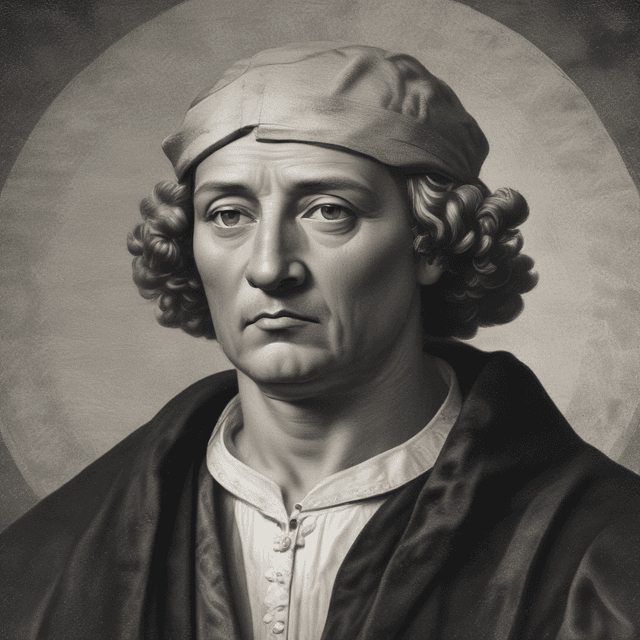
| Name | Christopher Columbus |
| Legacy | Widely criticized as a controversial historical figure |
| Significance | Ushered in European colonization of the Americas, leading to exploitation of indigenous populations |
| Controversies | Mistreatment of native peoples, devastating long-term impacts of European colonization |
| Historical Role | Explorer and colonizer |
Christopher Columbus was an Italian explorer and navigator who is infamously remembered for initiating contact between the Old World (Europe, Africa, and Asia) and the Americas in the late 15th century. However, in contrast to the heroic status bestowed upon him in our timeline, Columbus's legacy in this universe is overwhelmingly negative, with his actions and the subsequent colonial period leading to the subjugation, enslavement, and near-annihilation of indigenous civilizations across the Western Hemisphere.
Born in the Republic of Genoa (now part of Italy) around 1451, Columbus spent his early life as a merchant sailor, gaining experience in navigation and seafaring. In 1492, he convinced the Spanish Monarchy of King Ferdinand and Isabella I of Castile to finance a voyage to find a western sea route to Asia, with the promise of riches and converts to Christianity.
Columbus's first voyage, departing from Spain, reached the Bahamas in October 1492. However, instead of finding a new route to Asia, he had inadvertently "discovered" the previously unknown Americas. Over the course of four voyages between 1492 and 1504, Columbus explored the Caribbean islands, the Central American mainland, and parts of the northern South American coast, making contact with various indigenous populations.
Columbus's encounters with the native inhabitants of the lands he "discovered" were overwhelmingly negative, marked by violence, exploitation, and disastrous consequences for the indigenous populations. Viewing the Taíno, Carib, and other groups as uncivilized "savages," Columbus and his crews ruthlessly suppressed local resistance, enslaving thousands and subjecting them to brutal forced labor on Spanish plantations and mines.
The introduction of European diseases like smallpox also devastated the immunologically vulnerable indigenous peoples, leading to the near-extinction of entire civilizations. Columbus's brutal governance and the rapacious colonial policies he implemented laid the groundwork for centuries of oppression and genocide across the Americas.
In the aftermath of the colonial period, the historical reputation of Christopher Columbus has undergone a dramatic reevaluation in this timeline. Rather than being celebrated as a pioneering explorer, he is now widely condemned as a cruel and incompetent leader whose actions had catastrophic consequences for the native inhabitants of the lands he "discovered."
Efforts to commemorate Columbus's legacy, such as the Columbus Day holiday, face widespread opposition from indigenous rights activists and advocates for historical accuracy. Many cities, states, and nations have renamed the holiday to "Indigenous Peoples' Day" or simply removed it from the calendar altogether. Statues, monuments, and other public tributes to Columbus have also been frequently targeted for removal or defacement by protesters seeking to rectify the historical record.
Overall, Christopher Columbus's legacy in this timeline is one of exploitation, subjugation, and the facilitation of European colonial expansion at the expense of indigenous populations. His actions and the colonial period he initiated are now seen as a profound tragedy in human history, rather than a cause for celebration. The enduring impacts of this legacy continue to shape the political, social, and cultural landscape of the Americas to this day.